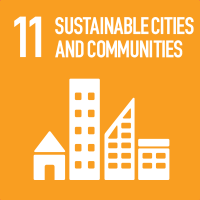Studying at the University of Verona
Here you can find information on the organisational aspects of the Programme, lecture timetables, learning activities and useful contact details for your time at the University, from enrolment to graduation.
Study Plan
The Study Plan includes all modules, teaching and learning activities that each student will need to undertake during their time at the University.
Please select your Study Plan based on your enrollment year.
1° Year
| Modules | Credits | TAF | SSD |
|---|
1 module between the following2° Year It will be activated in the A.Y. 2025/2026
| Modules | Credits | TAF | SSD |
|---|
1 module among the following2 modules among the following2 modules among the following| Modules | Credits | TAF | SSD |
|---|
1 module between the following| Modules | Credits | TAF | SSD |
|---|
1 module among the following2 modules among the following2 modules among the following| Modules | Credits | TAF | SSD |
|---|
Legend | Type of training activity (TTA)
TAF (Type of Educational Activity) All courses and activities are classified into different types of educational activities, indicated by a letter.
Management for the creative and cultural industries (2024/2025)
Teaching code
4S012455
Academic staff
Coordinator
Credits
9
Language
Italian
Scientific Disciplinary Sector (SSD)
SECS-P/08 - MANAGEMENT
Period
CuCi 1 A, CuCi 1 B
Courses Single
Authorized
Learning objectives
At the end of the course, students will be well familiar with the analysis and evaluation tools, especially in relation to the value proposition of companies and the detection of impact in the Cultural Heritage sector. The course aims to illustrate and transmit to students advanced knowledge (theoretical and practical), fundamental concepts and analytical and operational tools relating to the governance, direction and management of creative and cultural enterprises, taking into account the main competitive challenges currently affecting the sector.
Prerequisites and basic notions
No prerequisites.
Program
MANAGEMENT MODULE
1. Goods, Services, Experiences
2. Businesses and other productive organizations
3. Strategic and competitive management
4. Peculiarities of cultural and creative industries
MANAGEMENT CONTROL MODULE
1. Management activity and the cost measurement system
2. The cost measurement system full activity-based
3. Cost measurement in orders
4. Break-Even Analysis
Textbook: Arcari A., Programming and Control, 4th edition, McGraw-Hill, Milan, 2023
Didactic methods
The teaching methods consist of both frontal lessons, as regards the transmission of basic notions, key categories and fundamental application tools, both examples and exercises on the functioning of management control tools and forms of interactive teaching such as seminar lessons, works group discussions, case studies as well as the participation of scholars, entrepreneurs, managers and experts as privileged witnesses.
The course is also based on a variety of learning resources; in particular, in addition to the textbook, numerous support materials, additional readings and links to websites are made available on the e-learning platform, making the course a potentially very rich experience in terms of knowledge acquisition.
Learning assessment procedures
The final exam consists of a written test, containing both theoretical questions (open and multiple choice), aimed at verifying knowledge of the topics in the programme, and numerical exercises aimed at verifying the ability to apply the different directional control tools, with their respective methodologies.
An oral test will be held either at the discretion of the teacher or at the request of the student who has passed the written test.
There are no intermediate tests and the exam methods are the same for attending and non-attending students.
Evaluation criteria
The evaluation is aimed at verifying the acquisition of the fundamental contents of the module, the ability to systematically connect the different parts of the program, the ability to critically study the concepts, the ability to apply knowledge to the company reality, the ownership of language as well as the ability to solve numerical questions relating to the different instruments studied.
Criteria for the composition of the final grade
The final evaluation is expressed out of 30 and takes into account all the tests taken for the purposes of the assessment.
Exam language
Italiano

